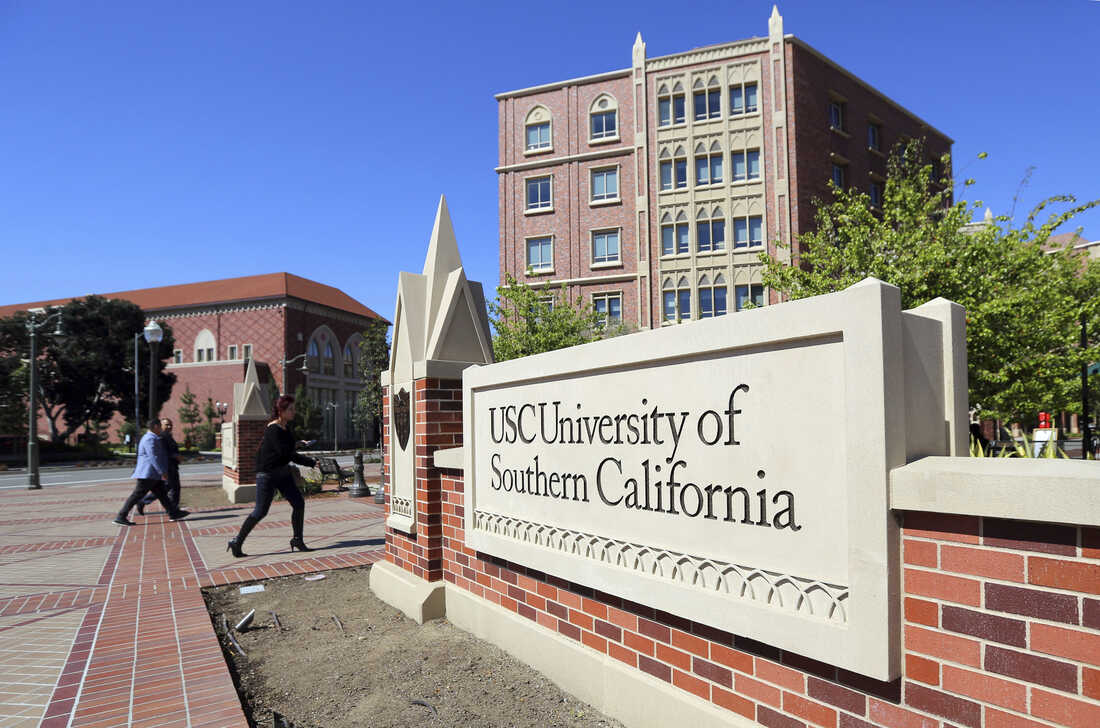Education
USC says it is canceling its valedictorian speech because of safety concerns
This March 12, 2019, file photo shows the University Village area of the University of Southern California in Los Angeles.
Reed Saxon/AP
hide caption
toggle caption
Reed Saxon/AP
This March 12, 2019, file photo shows the University Village area of the University of Southern California in Los Angeles.
Reed Saxon/AP
The University of Southern California will no longer have its valedictorian speak at its commencement ceremony because of safety concerns, the school said Monday.
Asna Tabassum was selected as this year’s valedictorian. But student groups called for the decision to be reconsidered due to Tabassum’s social media content on the conflict between Israel and Palestine.
Tabassum’s Instagram page links to a slideshow that says “learn about what’s happening in Palestine, and how to help,” and criticizes Zionism.
Tabassum’s social media activity has drawn criticism, with student groups, such as the organization Trojans for Israel, calling the content “antisemitic bigotry.” Other social media users, however, denounced USC’s decision and said Tabassum should be able to speak freely.
USC Provost Andrew Guzman, who picks the valedictorian, said the matter “has grown to include many voices outside” the campus community, and poses a security threat to next month’s event, which is anticipated to have 65,000 guests.
“After careful consideration, we have decided that our student valedictorian will not deliver a speech at commencement,” Guzman said. “While this is disappointing, tradition must give way to safety.”
Tabassum, who is South Asian-American and Muslim, said in a statement that as a result of the backlash, she has faced “a campaign of racist hatred because of my uncompromising belief in human rights for all.”
Tabassum said she questions safety concerns being the university’s reason for canceling her speech. She said she was denied a request for the school’s threat assessment. Additionally, during a meeting with university leaders, she said she was told the school would not be increasing its security presence, despite having the resources to do so, because that’s not what USC wants to “present as an image.”
“I am not surprised by those who attempt to propagate hatred,” said Tabassum, who studies biomedical engineering and resistance to genocide. “I am surprised that my own university—my home for four years—has abandoned me.”
“USC supports free speech and dissent, so long as it doesn’t disturb university activities,” Guzman said.
He added that USC’s 300-employee Department of Public Safety will be “fully deployed” at commencement, along with officers from the Los Angeles Police Department.
Guzman said that the school is “resolute in our commitment to maintain and prioritize the existing safety and well-being of our USC community during the coming weeks.”
Guzman picked this year’s valedictorian from a pool of about 100 eligible applicants and examined several factors, excluding social media presence, he said.
